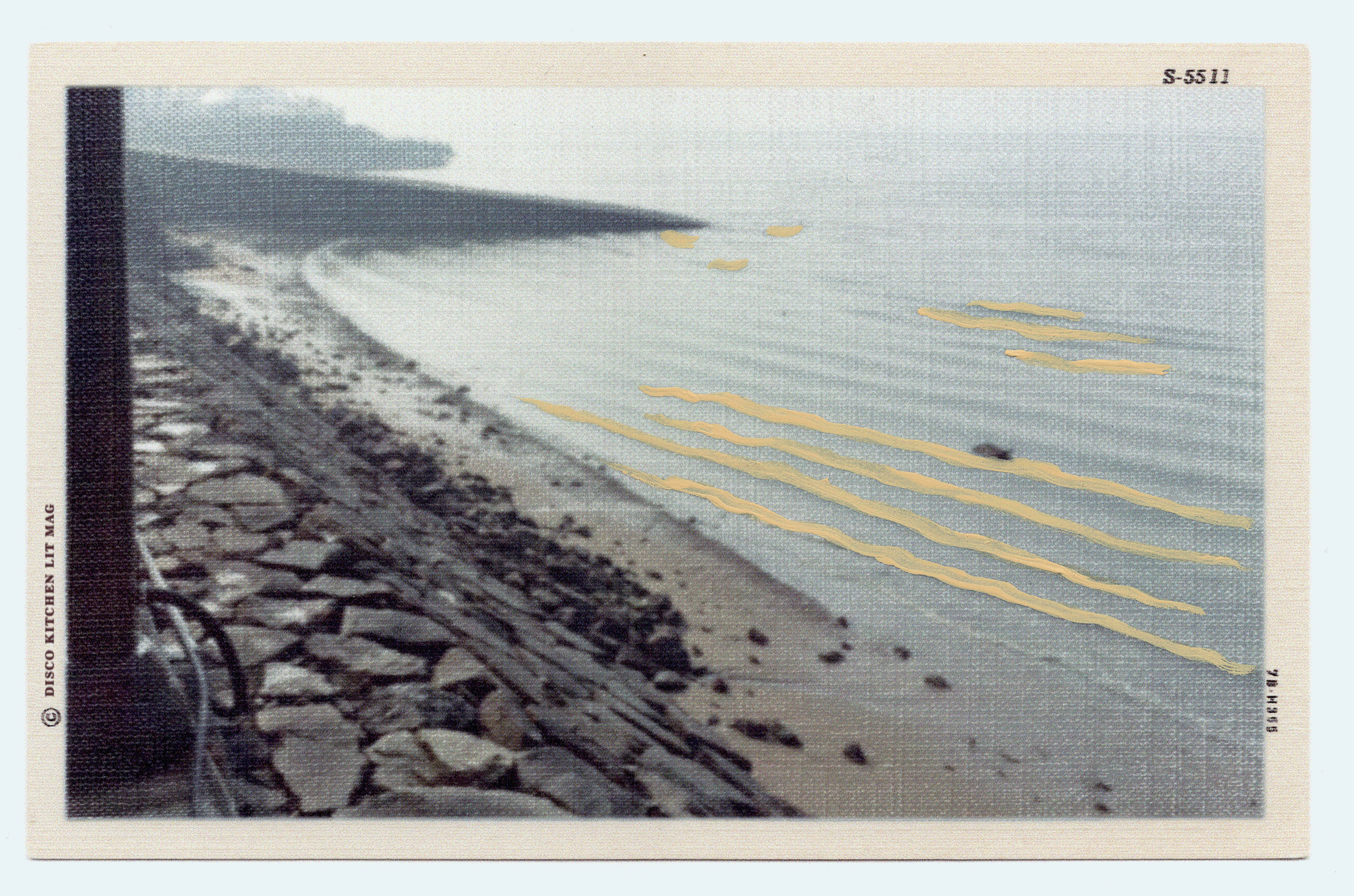THINGS FOUND ON BEACHES
by Dylan Reber
Once, on vacation in some tropic or other, I saw a curious object wash ashore. Saw it from the hotel window. I was high up and it was far away, and from my perch it appeared to be a rusted green car door or a flattened tent or a sail. You lay behind me on the bed, asleep, so I stepped into the hall, down the stairs to the lobby, and walked out to the beach alone. Evening had come on, stretching a blue shadow over sands that were violently white an hour before. The surf murmured as it rolled up the slight incline of shore and murmured as it rolled back down, leaving a bubbling lacework of foam behind it and tiny slivers of shells that settled in the sagging mud, letting the backwash drag other unlucky things again toward the deep. I heard the faint sucking of mole crabs burrowing in and out of their swash tunnels, and the rustle of waves, and little else. And as the sky traded its final streaks of light for monotonous dark, the sea grew darker too. Blue sand. Black ocean. It would rain later, much later, in the bloodshot hours of the night. When you and I lay sleeping, sheet draped like two marble-robed statuettes, our clothing piled on the floor in cotton mounds, and the AC unit whining mechanically over the low rumble of thunder in the distance.
I should have slept before, with you, and not gone to see what washed ashore. It was farther down the beach than it had appeared from the window and as I walked I wondered whether the tide hadn’t risen and carried it back to sea. The night was so dark that I could only look down and hope to find it at my feet, which I did, but not until I’d marched the shoreline for half an hour without any luck. It was after turning back that I stumbled on it. Maybe I’d missed it before, or else it had drifted with the surf and then washed up again. It was not green, not really, but pale, filmy, almost translucent. It gave off a wan phosphorescence that seemed to pulse with the tide, growing brighter when the surf rolled up the bank of sand and dimmer when it receded. Somehow it struck me as being very beautiful, this greenly glowing something in the dark. I knelt for a closer look, but the thing wore no distinguishing features, gave no sign of life besides the pulsing, and I stared and wondered what it could be. It was about as wide as a child’s umbrella, paper-thin at the edges but thicker towards the center, where the low raised hump that might have been its head stood a few inches tall at its highest point. I rose and prodded it with my foot and found it soft beyond reason, giving way with such ease that my sandal seemed clothed in it. Its body rippled strangely and I pulled back. The thing, awash now in the sea, pulsed again with light. I felt afraid of it for the first time and felt that I should have been afraid of it from the start, but had been tricked somehow into regarding it as an archaeologist regards the bones of the dead. Only here was something alive and glowing that had floated out of who knows what abyss and washed up on a shore it did not and could not belong to. Then came the low dull thunder with its promise of rain. I had not brought a cell phone with me and had been gone for more than an hour. Alone in the hotel, you would worry after me if you awoke. It was time to go back.
But I took the thing with me. When I grabbed hold of it by the edges and lifted it, the low raised mound in its center flattened out and sagged so that its body folded in two, and I slung it over my right arm like a waiter’s napkin and headed for the hotel, which seemed very far away now and much too dimly lit for a hotel at night. I didn’t know what I would do with it when I got there. What I would say to you. I knew not to walk into the lobby or our room with it draped over my arm. So I folded it in half again and again and each time I folded it grew thinner and not thicker until it was little more than a square of slick translucent tissue paper. Away now from the sea, it no longer pulsed or rippled. I put it into my pocket and went on. When I came to the hotel’s glass doors, I reached down to feel for the thing and found it drier, harder, and smaller than before. I worried that, whatever it was, I had killed it, but I couldn’t take it out, not here and not now but soon. In the room where you were sleeping as soundly as I had left you, after keying in and taking off my sandals and moving toward the band of grey moonlight leaking in from the half-curtained window—the window that looked out at the sea and the shore and the sky that was not yet raining and from which I had seen the curious object wash ashore. And I was pulling it now from my pocket and presenting it to the light and it was no longer what it had been but only a tiny pink-white seashell glittering like a star.
Dylan Reber is a writer and editor. His stories have appeared in The Columbia Review, Four Palaces, The Rumen, and elsewhere. He lives in Georgia, where he is working on a collection of short fiction.


